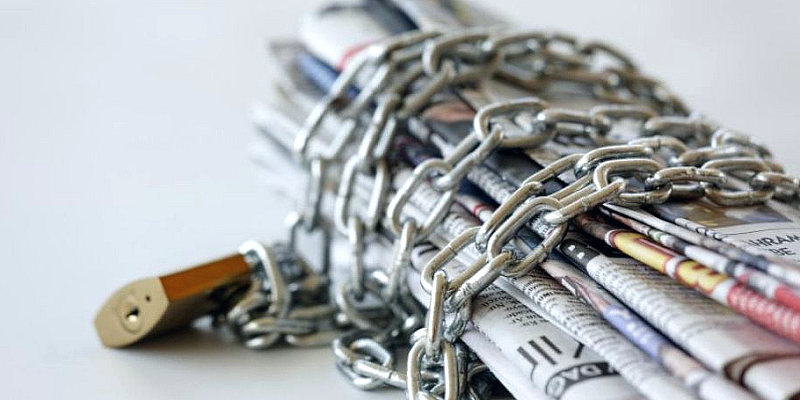
As representatives from media companies, politicians and government officials including President Joko “Jokowi” Widodo gather in Medan, North Sumatra, on Thursday to celebrate National Press Day, the truth of the matter is there is little cheer for members of the media this year.
In Indonesia, as in many other parts of the world, media freedom continues to be under assault from many quarters.
The latest threat that human rights activists deem to be detrimental to press freedom is the passing of the new Criminal Code, with stipulations allowing for the criminalization of journalistic work deemed to be an insult to state institutions, the head of state or state ideology Pancasila.
Other articles stipulate that members of the media could be prosecuted for running libelous articles and the spreading of “hoaxes.”
The passing of the new Criminal Code in December seemed fitting to wrap up a year when the working environment for journalists the world over became more hostile.
The New York-based Committee to Protect Journalists wrote in its 2022 report that at least 67 media workers were killed worldwide, the highest number since 2018.
Even in the United States, which many deem to be the bastion of liberal democracy, a journalist for the Las Vegas Review Journal was killed for doing his job.
In Indonesia, many journalists continued to be subject to intimidation, including death threats.
In Central Aceh, a chief editor was threatened with death in November last year, after publishing a story on the irregularities involving the construction of a local market.
Also in November, police in North Sulawesi arrested a journalist while covering a land dispute protest in the city of Mandolang.
This anecdotal evidence does appear to confirm the 2022 report of the Reporters Without Borders Press Freedom Index that ranked Indonesia 117th out of 180 countries surveyed for the year, down from 113th in the previous year.
This setback to media freedom and the increasing hostility toward the press happen while the media industry itself is facing unprecedented challenges caused by the disruption that is the internet and the rise of social media.
The business model of relying on advertising to pay for the work of journalism has been disrupted by the rise of tech giants some of which could offer better deals in accessing customers with targeted ads.
Media companies, whose specialized craft is producing journalism, certainly do not stand a chance against companies whose sole modus operandi is to work on the best algorithm to deliver the best results on ads.
The rise of these big tech platforms had created problems for media companies’ bottom lines long before Covid-19 and the pandemic only made it worse for almost everyone in the media industry.
Even deep-pocketed media companies like The Washington Post, backed by the coffers of the world’s richest man, found the challenges too difficult to overcome that late last year, when the venerated media outlet decided to lay off staff.
For media in Indonesia though, help could be on the way.
In the lead-up to National Press Day, the government of President Jokowi has prepared a presidential regulation that could allow for media companies to get payments from tech giants for news these companies carry on their platforms.
The new regulation, if passed, could also mandate tech platforms to give priority to news published by reputable media outlets and crack down on “click-bait” material.
If passed, this could not only improve the bottom line of media companies but at the same time increase the quality of journalism in the country.
ADVERTISEMENT
ADVERTISEMENT








































